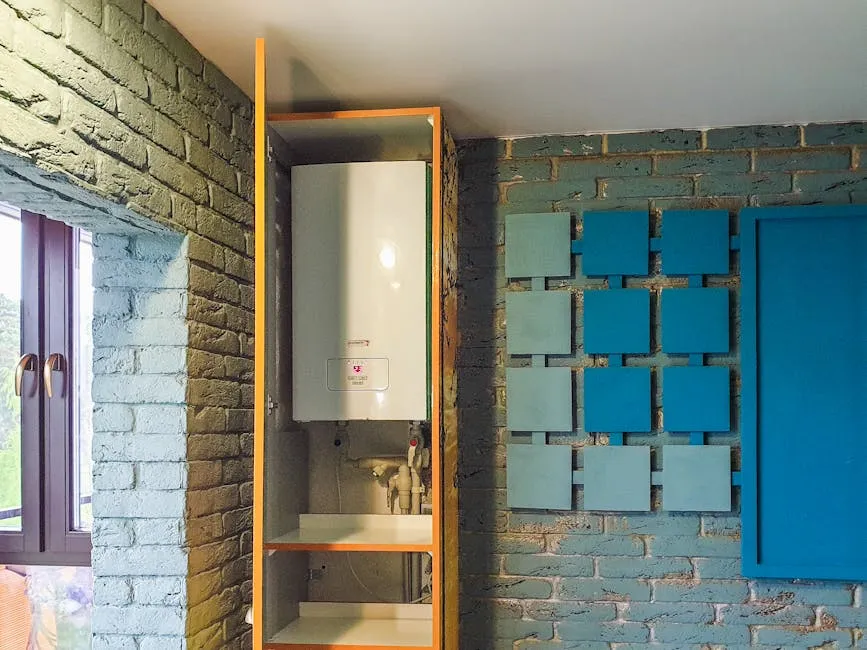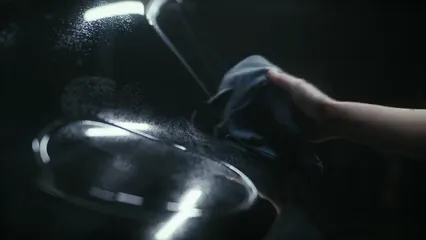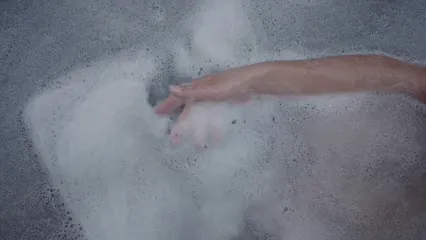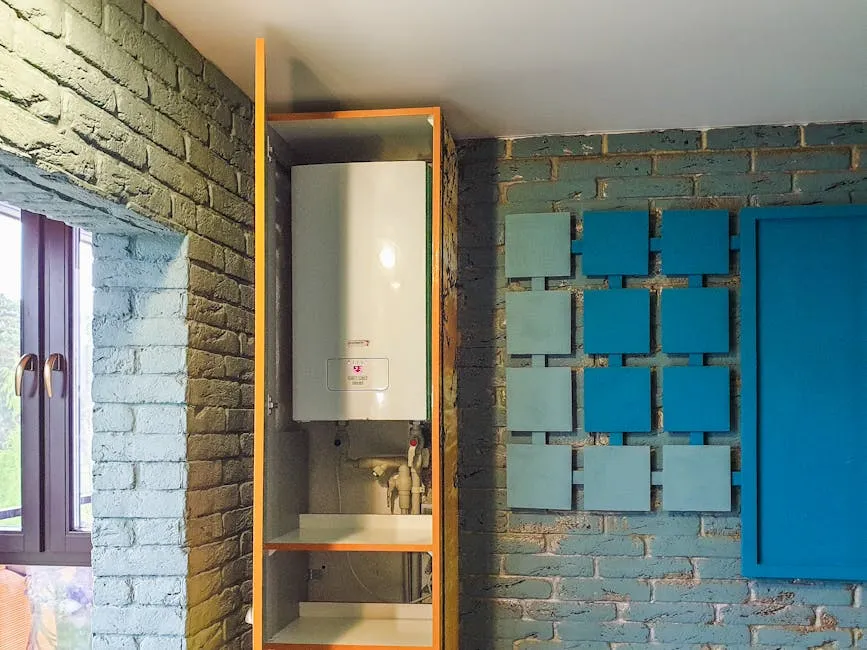
Why Do You Have to Descale a Tankless Water Heater?
Introduction
Tankless water heaters are gaining popularity for their efficiency. They heat water on demand, saving energy and space. However, maintenance is crucial, especially descaling. This article explains why descaling is essential for these units.Summary and Overview
Tankless water heaters differ from traditional models by not storing water. Instead, they provide hot water instantly, reducing energy waste. Despite their efficiency, scaling from hard water can build up inside these heaters, affecting performance. Minerals like calcium and magnesium accumulate and hinder heating efficiency. Regular descaling helps maintain optimal function and extends the heater’s lifespan. This article will detail the causes of scaling and the importance of descaling your tankless water heater. To help keep your water heater running smoothly, consider investing in a Tankless Water Heater Flush Kit. It’s a must-have for any homeowner looking to maintain their unit effectively.
The Importance of Descaling
Why Scaling Occurs
Minerals like calcium and magnesium naturally exist in water. When water heats up, these minerals can precipitate and form scale inside the tankless heater. Hard water, which contains high mineral content, exacerbates this issue. Areas with hard water, like parts of Southern California, often see more scaling. Regular descaling can prevent these mineral deposits from causing performance issues in your unit.Consequences of Neglecting Descaling
Neglecting to descale your tankless water heater can lead to a range of unfortunate consequences. First, scale buildup significantly reduces efficiency, making your heater work harder to heat water. This extra effort increases energy consumption, leading to higher utility bills. Furthermore, the physical damage can be severe. Clogs caused by mineral deposits can disrupt water flow. This disruption may cause overheating, which can lead to permanent damage to the heating elements. In the long run, ignoring descaling can result in costly repairs or even premature replacement of the unit. Regular maintenance is essential to prevent these issues and extend the life of your heater. Don’t forget to stock up on Distilled White Vinegar, a great option for DIY descaling!
How Often Should You Descale?
Factors Influencing Descaling Frequency
The frequency of descaling greatly depends on water hardness levels. Hard water, rich in minerals like calcium and magnesium, leads to more rapid scaling. If you live in an area with hard water, your heater may require descaling every six months. Additionally, your usage patterns and the water temperature settings can affect scaling. Higher temperatures and frequent usage typically increase mineral buildup. Most experts recommend descaling at least once a year, or more often for those with hard water.Signs Your Heater Needs Descaling
Pay attention to common indicators that your heater may need descaling. Reduced water flow is a primary sign; if you notice a decrease in hot water availability, it’s time to check for scale. Strange noises, like popping or gurgling, can also indicate scaling issues. Error codes on your unit’s display can signal internal problems related to mineral buildup. Regular monitoring of these signs can help maintain your heater’s performance and prevent costly repairs.
DIY Descaling Process
Preparation for Descaling
Before you begin, gather the necessary tools and supplies. Here’s what you’ll need:- Tankless water heater flush kit
- Submersible pump
- Two hoses (for inlet and outlet)
- Distilled white vinegar or a descaling solution
- Bucket to collect water
- Safety gear: rubber gloves, goggles, and a face mask

Step-by-Step Descaling Instructions
1. Turn Off Water and Gas: Shut off the cold and hot water valves. Unplug the heater or turn off the gas supply. 2. Drain the Heater: Position a bucket under the hot water valve. Remove the drain cap to let the water flow out. Repeat this for the cold water side. 3. Connect Hoses: Attach one hose to the pump and insert it into the bucket with your descaling solution. Connect the other end to the cold water drain valve. Repeat with the hot water valve using a second hose. 4. Add Descaling Solution: Pour distilled white vinegar or the descaling solution into the bucket until the pump is submerged. 5. Start the Pump: Open both drain valves and turn on the pump. Let it circulate the solution for about 30 minutes. This process breaks down mineral buildup. 6. Flush the System: After 30 minutes, close the cold water drain valve. Remove the hose and replace the cap. Fill the bucket with fresh water and flush the heater for five minutes. 7. Reconnect Everything: Once flushed, close the hot and cold service valves. Disconnect the hoses, reattach the caps, and restore the water and gas supply. 8. Final Check: Turn on the heater and run hot water from a tap. This ensures everything is working correctly. By following these steps, you can keep your tankless water heater clean and efficient. Regular descaling prevents scaling issues and extends the life of your unit. If you’re looking for a comprehensive guide, check out this DIY Home Maintenance Guide to help you tackle other home projects too!Professional Descaling Services
Benefits of Hiring a Professional
While DIY descaling can save money, hiring a professional is often the best choice. Professionals bring expertise and efficiency to the table. They understand the intricacies of your specific model and can ensure a thorough job. Safety is another advantage. They know how to handle cleaning agents and equipment without risk. During a service visit, expect a complete inspection of your unit, including checking for any other maintenance needs. This proactive approach helps catch potential issues early, saving you from costly repairs down the line. In summary, professional descaling offers peace of mind. You can trust that your tankless water heater will operate at peak performance, keeping your hot water flowing smoothly. If you’re ever in need of a Water Leak Detector, it’s a smart investment for your home!
Cost Considerations
Hiring a professional to descale a tankless water heater typically costs between $100 and $300. The price can vary based on your location and the complexity of the job. While this might seem steep, consider the long-term benefits. If you’re not confident in your DIY skills or lack the necessary tools, investing in a professional can save you from potential damage. On the other hand, if you feel handy, DIY descaling can save you money while ensuring your unit runs smoothly. Don’t forget to check out a Home Repair Book for more DIY tips!
Preventative Measures
Water Softening Solutions
Water softeners play a crucial role in reducing scaling in tankless water heaters. They work by removing hard minerals like calcium and magnesium, which contribute to buildup. When choosing a water softener, consider factors like the size of your household and the hardness of your water. Look for systems that provide a good balance between effectiveness and maintenance needs. Regularly checking and replacing the salt in your water softener is essential to keep it functioning effectively.
Routine Maintenance Tips
To minimize scaling, perform regular checks on your tankless water heater. This includes inspecting inlet filters for debris and ensuring valves are functioning properly. Flushing your system annually helps remove any minor buildups before they become problematic. Always follow the manufacturer’s guidelines for maintenance. These steps not only help extend the lifespan of your heater but also ensure it operates at peak efficiency. Regular maintenance is key to preventing costly repairs down the line. And for those who love a good read, don’t miss out on a subscription to a Home Improvement Magazine!
Conclusion
In summary, descaling your tankless water heater is vital for optimal performance. Scaling from hard water can cause inefficiency and damage over time. Regular maintenance not only improves efficiency but also extends the lifespan of your unit. It’s essential to stay proactive in caring for your heater. Whether you choose to tackle this task yourself or hire a professional, taking action is key. Don’t wait until problems arise; stay ahead with a routine descaling schedule. Your future self will thank you for it! And while you’re at it, consider an Smart Water Meter to help monitor your home’s water usage!
FAQs
What is descaling and why is it important for tankless water heaters?
Descaling involves removing mineral buildup from your heater. This process is crucial as it maintains efficiency and prevents damage caused by scale.
How can I tell if my tankless water heater needs descaling?
Look for signs like reduced water flow, unusual noises, or error codes. These indicators suggest that scaling may be affecting your heater’s performance.
Can I use vinegar for descaling my tankless water heater?
Yes, vinegar is a cost-effective option for descaling. However, commercial descaling solutions can be more effective for tougher buildup.
Is it necessary to hire a professional for descaling?
While you can descale your heater yourself, professionals offer expertise and ensure safety. They can also identify other potential maintenance needs during the process.
What happens if I don’t descale my tankless water heater?
Neglecting descaling can lead to reduced efficiency, increased energy costs, and potential damage that may require expensive repairs or replacement.
How does water hardness affect descaling frequency?
Hard water leads to more rapid scaling. If you live in an area with hard water, you may need to descale your heater more frequently, possibly every six months.
Are there any preventative measures to reduce the need for descaling?
Installing a water softener can reduce mineral content in your water. Regular maintenance checks and flushing can also help minimize scaling issues.
Please let us know what you think about our content by leaving a comment down below!
Thank you for reading till here 🙂
All images from Pexels




